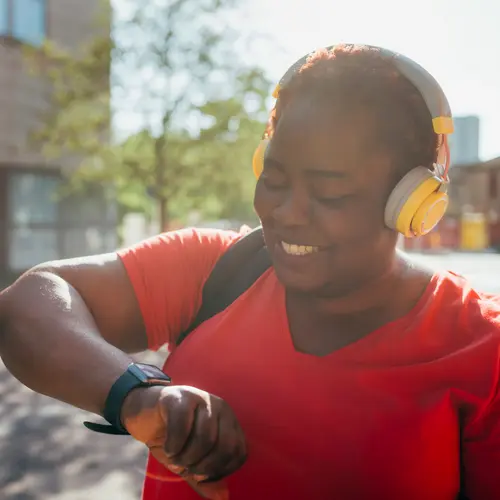If you have diabetes, you know lots of things -- from eating too much, to missing a snack, to plain old stress -- can affect your blood sugar. But did you know just getting older could make it harder to control?
There’s a lot going on in your body as you age. If you become more of a couch potato as you get up in years, you may gain weight. This lack of exercise and the extra pounds can send your blood sugar levels too high. And as you age, your body doesn’t use the insulin it makes as well as it did when you were younger.
Your body also starts making less of some hormones, including the human growth hormone. Women will create less estrogen and progesterone, and men often produce less of the sex hormone testosterone. And as you get older, you may be more prone to illness and infections that can spike your blood sugar.
Don’t worry too much, though. Middle age doesn’t mean you have to make dramatic changes to control your diabetes. It’s just good to be aware of things that might pop up.
The Outlook for Women
As women get older, hormone changes before and during menopause often cause hot flashes, irritability, and trouble sleeping. Not only do these drops or spikes in the hormones impact your mood and life, but they can also affect your blood sugar. These ups and downs may mean you have to test your levels and make adjustments more often.
If you have type 1 diabetes, you may notice low blood sugar levels more often as you get closer to menopause. This can be a sign that your hormones are going down and you may need less insulin. It’s important to know the difference between low blood sugar and moodiness or other perimenopause symptoms.
You may reach menopause early if you have type 1 diabetes, but if you’re overweight and have type 2, your changes could start later. That’s because estrogen doesn’t drop as quickly in heavier women.
As your body’s changing, it’s easy to confuse signs of menopause with symptoms of high or low blood sugar. Dizziness, sweating, irritability, and trouble concentrating could all result from hormonal changes or from blood sugar that’s too high or too low. The only way to know for sure -- and the safest thing to do -- is to test it. But checking too often can take an emotional toll. If you’re worried, your doctor or diabetes educator can help you figure out how often to do it.
If you can’t get your blood sugar levels where they need to be, your doctor might suggest hormone replacement therapy (HRT).
If you’ve gone through menopause and you have diabetes, you may have a slightly higher chance of urinary tract and vaginal infections. Estrogen levels go down during menopause, causing vaginal dryness and other things.
The Outlook for Men
Testosterone, the hormone that helps control sex drive, muscle mass, and strength, naturally goes down as men get older. Low testosterone can cause insulin resistance, which means that your body’s cells don’t respond to insulin. If your testosterone level is low, testosterone therapy may improve your blood sugar levels.
How to Stay Healthy in Midlife
As it turns out, the things you do to get a handle on diabetes as you enter midlife aren’t that different than what you’ve been doing all along to stay healthy:
- Pay attention to your diabetes. That means you need to keep track of your blood sugar levels and talk to your doctor if they’re all over the place and you can’t figure out why. Keep a record of your results and go over them with your doctor.
- Watch your weight.
- Eat a healthy diet. Get plenty of vegetables, choose whole-grain foods, and opt for lean proteins and low-fat dairy.
- Get at least 30 minutes of exercise a day. It will give you more energy and boost your mood. You’ll get the most benefit by doing a combination of an exercise that ups your heart rate -- like brisk walking -- along with strength training, like lifting weights.

